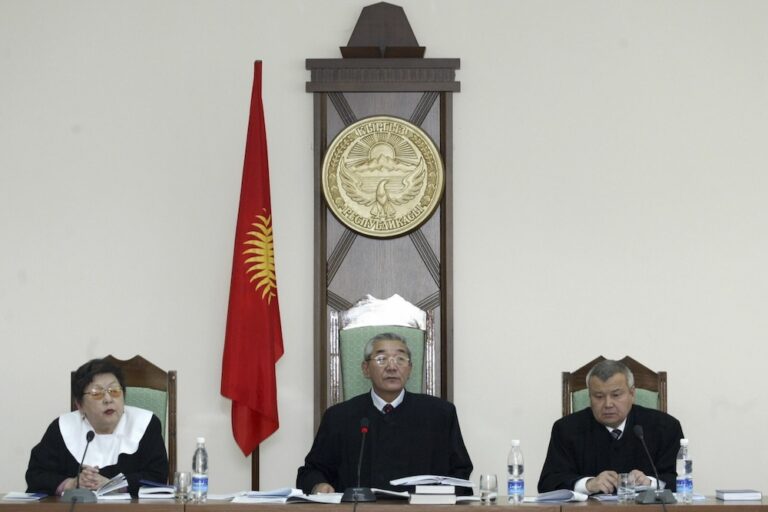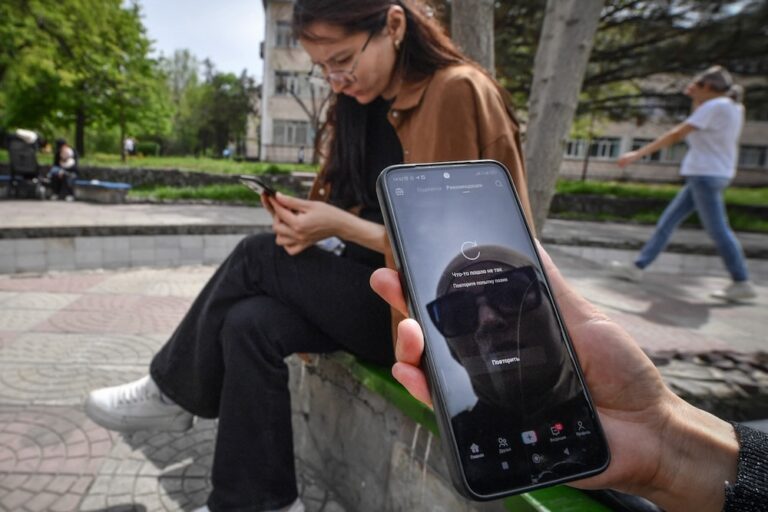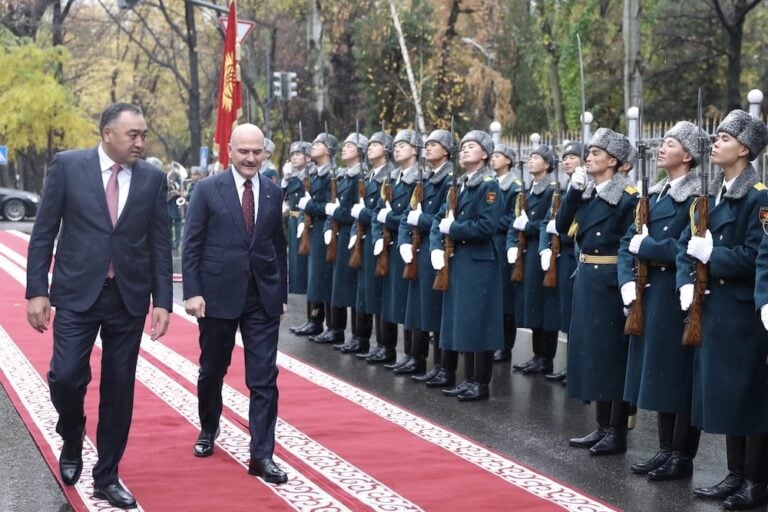(RSF/IFEX) – Although the international community has hailed a new constitution limiting the president’s powers and increasing those of parliament as an important step in Kyrgyzstan’s democratic evolution, a wave of press freedom violations occurred during the massive demonstrations that preceded its adoption on 9 November 2006, said Reporters Without Borders. “Popular unrest forced President […]
(RSF/IFEX) – Although the international community has hailed a new constitution limiting the president’s powers and increasing those of parliament as an important step in Kyrgyzstan’s democratic evolution, a wave of press freedom violations occurred during the massive demonstrations that preceded its adoption on 9 November 2006, said Reporters Without Borders.
“Popular unrest forced President Kurmanbek Bakiyev to make democratic concessions, but the handling of the crisis showed the government’s authoritarian nature,” the press freedom organisation said. “Journalists were attacked while covering the demonstrations and websites were blocked, preventing the public from getting proper news coverage. It highlighted how precarious the media are and how they are exposed to frequent government censorship.”
Journalists with the 24.kg news agency were attacked by unidentified assailants while covering a pro-government demonstration in the capital, Bishkek, on 7 November. TV Pyramida reporter Turat Bektenov was attacked as he was returning home the same day.
Several media were prevented from providing news coverage from 2 to 7 November. TV Pyramida’s antenna was attacked and damaged. The broadcasts of NTS, an independent TV station that was covering the protests live, were interrupted several times. The content and archives of the online newspaper http://www.tazar.kg were deleted the night after six protesters were injured, three of them with gunshot wounds, when police dispersed a demonstration.
Marat Tokoyev of the NGO Journalists said the media were not able to cover these demonstrations in an independent manner.


